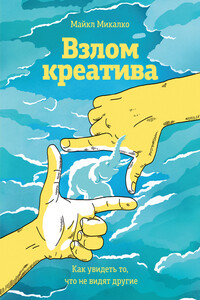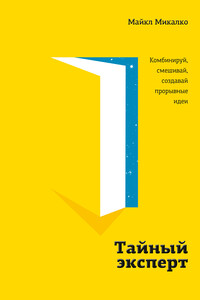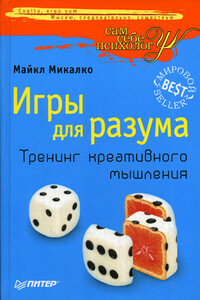–. “Intellectual Resources and Their Values As Seen by Scientists.” In Scientific Creativity, ed. by C.W. Taylor and F. Barron, pp. 101–118. New York: Wiley, 1963.
–. The Nature of Human Intelligence. New York: McGraw-Hill, 1967.
Hadamard, J. An Essay on the Psychology of Invention in the Mathematical Field. Princeton, NJ: Princeton University Press, 1945 (Адамар Ж. Исследование психологии процесса изобретения в области математики. М.: Советское радио, 1959).
Hoffmann, Banesh, and Helen, Dukas. Albert Einstein: Creator and Rebel. New York: NAL-Dutton, 1973.
Holton, G., and Y. Elkana, eds. Albert Einstein: Historical and Cultural Perspectives. Princeton, NJ: Princeton University Press, 1982.
–. “On Trying to Understand Scientific Genius.” The American Scholar 41 (1971): 98–99.
–. Thematic Origins of Scientific Thought: Kepler to Einstein, reprint ed. Cambridge, MA: Harvard University Press, 1988.
Homer, Willliam. Seurat and the Science of Painting, reprint ed. New York: Hacker Art Books, 1985.
Horgan, Paul. Encounters with Stravinsky, reprint ed. Middletown, CT: Wesleyan University Press, 1989.
Horn, J. “Human Abilities: A Review of Research and Theory in the Early 1970s.” Annual Review of Psychology 27 (1976): 437–485.
Infeld, Leopold. Albert Einstein: His Work and Its Influence on Our World. New York: Scribner’s, 1950.
Jackson, Douglas, and J. Rushton, eds. Scientific Excellence. Beverly Hills, CA: Sage Publications, 1987.
James, William. “Great Men, Great Thoughts, and the Environment. Atlantic Monthly 46 (1880): 441–459.
Jansson, D. G., and S. M, Smith. “Design Fixation.” Design Studies 12 (1) (1987): 3–11.
Jenkins, R. “Elements of Style: Continuities in Edison’s Thinking.” Annals of the New York Academy of Sciences 424 (1983): 149–162.
Jones, E. The Life and Work of Sigmund Freud. New York: Basic Books, 1961 (Джонс Э. Жизнь и творения Зигмунда Фрейда. М.: Наука, 1997).
Judson, Horace. The Eighth Day of Creation: Makers of the Revolution in Biology. Plainview, NY: Cold Spring Harbor, 1996.
Koestler, Arthur. The Act of Creation. New York: Viking Penguin, 1990.
Kohler, Wolfgang. The Task of Gestalt Psychology. Ann Arbor, MI: Books on Demand (Келер В., Коффка К. Гештальт-психология. М.: АСТ, 1998).
Landrum, Gene. Profiles of Genius. New York: Prometheus Books, 1993 (Ландрам Дж. Профили гениев. Ростов-на-Дону: Феникс, 1997).
Lorenz, Konrad. “The Role of Gestalt Perception in Animal and Human Behavior.” In Aspects of Form, edited by L. Whyte, pp. 157–178. Bloomington, IN: Midland Books, 1966.
Macfarlane, Gwen. Alexander Fleming: The Man and the Myth. Cambridge, MA: Harvard University Press, 1984.
Mednick, S. “The Associative Basis of the Creative Process,” Psychological Review 69 (1962): 220–232.
Miller, Arthur I. Insights of Genius. New York: Springer-Verlag New York, 1996.
Mumford, M. D., and S. B. Gustafson. “Creativity Syndrome: Integration, Application, and Innovation.” Psychological Bulletin 103 (1) (1988): 27–43.
Murphy, G. L. “Comprehending Complex Concepts.” Cognitive Science 12 (1988): 529–562.
Ochse, R. Before the Gates of Excellence: The Determinants of Creative Genius. New York: Cambridge University Press, 1990.
Ortony, Andrew, ed. Metaphor and Thought, second ed. New York: Cambridge University Press, 1993.
Osborn, A. Applied Imagination. New York: Charles Scribner’s Sons, 1953.
Peat, David. In Search of Nikola Tesla. Bath: Ashgrove UK, 1997.
Perkins, David N. The Mind’s Best Work. Cambridge, MA: Cambridge University Press, 1981 (Перкинс Д. Как стать гением, или Искусство взрывного мышления. М.: АСТ, 2003).
–. “The Possibility of Invention.” In The Nature of Creativity: Contemporary Psychological Perspectives, edited by R. J. Sternberg. Cambridge, MA: Cambridge University Press, 1988.
Piaget, Jean. The Child’s Conception of the World, reprint ed. Totowa, NJ: Littlefield, Adams, 1983 (Пиаже Ж. Речь и мышление ребенка. М.: Римис, 2008).
Poe, Richard. The Einstein Factor. Rocklin, CA: Prima Publishing, 1995 (Вин В., По Р. Как развить феноменальную память, или Фактор Эйнштейна. Минск: Попурри, 2005).






